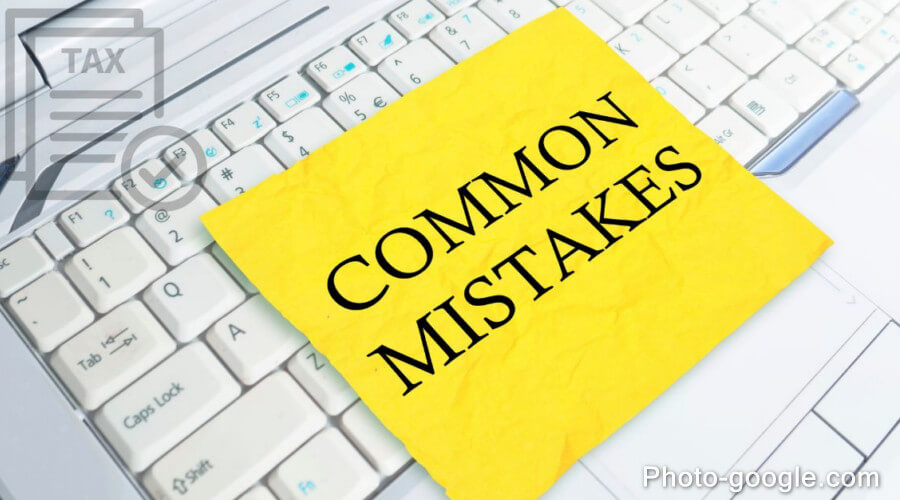Tax season is a time of year that many people dread. Gathering documents, navigating complex forms, and meeting deadlines can feel overwhelming. Amidst the rush, it is incredibly easy to make a simple mistake. Unfortunately, even a small error can have big consequences, leading to a delayed refund, a smaller return, or even an audit notice from the IRS.
The good news is that most of these mistakes are entirely preventable.
This guide is designed to help you prepare for filing your 2024 tax return in 2025. By understanding the most common pitfalls ahead of time, you can file with confidence. Let’s walk through the seven critical mistakes to avoid for a smoother, more accurate tax filing experience.
Disclaimer: This article is for informational purposes only and does not constitute professional tax advice. Please consult a qualified tax professional for advice tailored to your specific situation.
1. Choosing the Wrong Filing Status
Your filing status is one of the first and most important decisions you make on your tax return. It determines your standard deduction, your tax brackets, and your eligibility for certain credits. Choosing the wrong one can significantly impact your tax bill.
The five filing statuses are:
-
Single
-
Married Filing Jointly
-
Married Filing Separately
-
Head of Household
-
Qualifying Surviving Spouse
A common error is for single parents to file as “Single” when they may qualify for “Head of Household,” which offers a higher standard deduction and more favorable tax brackets. Similarly, newly married couples must decide between filing jointly or separately. Carefully review the criteria for each status to ensure you choose the one that provides the most benefit.
2. Simple Math Errors and Typos
It may sound obvious, but simple clerical errors are one of the top reasons the IRS flags a return. In the age of tax software, many calculation errors are caught automatically. However, manual data entry mistakes are still very common.
Be sure to double-check every entry. A single transposed digit in a Social Security number (SSN) can cause the IRS to reject your return entirely. Verify your name and the names of any dependents exactly as they appear on the Social Security cards. A small typo can create big headaches.
3. Overlooking Valuable Tax Credits and Deductions
This is where taxpayers often leave money on the table. Many people opt for the standard deduction because it’s easy. However, you could be missing out on significant savings if you qualify to itemize.
Furthermore, tax credits are even more valuable than deductions. A deduction reduces your taxable income, while a credit reduces your actual tax bill dollar-for-dollar.
Commonly missed credits and deductions include:
-
The American Opportunity Tax Credit (AOTC): For qualified education expenses.
-
Charitable Contributions: Even if you don’t itemize, you may be able to deduct some cash contributions.
-
Child and Dependent Care Credit: For costs associated with care while you work.
-
State and Local Tax (SALT) Deductions: Up to $10,000.
Do not rush through this section. For a deeper dive into what you might be able to claim, see [Our Ultimate Guide to 2024 Tax Deductions and Credits](your-internal-link-here).
4. Incorrectly Reporting All Income
Your W-2 from your employer is not your only source of taxable income. In the modern economy, many people have side hustles, investment income, or other earnings that must be reported. The IRS receives copies of these forms, too, so their systems will automatically flag a mismatch.
Be sure to gather all relevant income documents, such as:
-
Form 1099-NEC: For income from freelance or contract work.
-
Form 1099-INT: For interest earned from savings accounts.
-
Form 1099-DIV: For dividends from investments.
-
Form 1099-K: For transactions from third-party payment networks like PayPal or Venmo (if you meet the threshold).
Forgetting to report this income is a major red flag for the IRS and can result in penalties and back taxes.
5. Entering Incorrect Bank Account Information
You have filed your return and are expecting a refund. Weeks go by, and nothing shows up. A common culprit is a mistake in your direct deposit information.
If you want your refund deposited directly into your bank account, you must provide your account number and routing number. Take a moment to verify these numbers carefully. Transposing a single digit will send your refund into limbo, delaying your money for weeks or even months while the IRS processes a paper check instead.
6. Failing to Reconcile Premium Tax Credits
If you purchased health insurance through the Health Insurance Marketplace (under the ACA), you likely received advance premium tax credits to lower your monthly payments. When you file your taxes, you must reconcile these credits using Form 8962.
You will receive Form 1095-A from the Marketplace, which contains the information you need. Failing to file Form 8962 will halt the processing of your return. Furthermore, if your income changed during the year, you may find that you received too much or too little of the credit, which will affect your refund or amount owed.
7. Missing the Filing Deadline
The deadline to file your federal tax return is typically April 15th. Missing this deadline without filing for an extension can be costly.
There are two separate penalties to be aware of:
-
Failure-to-File Penalty: This is very expensive, calculated as 5% of your unpaid taxes for each month your return is late.
-
Failure-to-Pay Penalty: This is smaller, at 0.5% of your unpaid taxes per month.
Even if you cannot afford to pay your tax bill, you should always file your return on time or file for an extension. The failure-to-file penalty is much harsher than the failure-to-pay penalty.
Conclusion: A Little Diligence Goes a Long Way
Filing your taxes doesn’t have to be a source of anxiety. By being aware of these seven common mistakes, you can approach the process with a clear plan. Take your time, double-check your numbers, and ensure you have all your necessary documents before you start.
A careful and organized approach is your best defense against errors. It ensures you get the full refund you are entitled to without unnecessary delays or stressful letters from the IRS. For the most authoritative information and official forms, always refer to the official IRS website.




